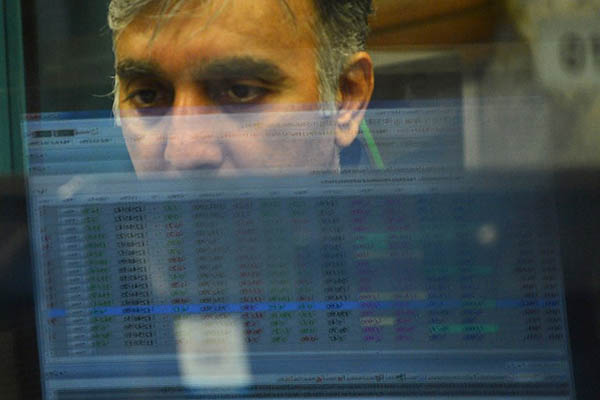
Rizwan Tabassum—AFP
Credit rating agency says outlook for 2020 is stable, but warns of considerable existing risks
American credit rating agency Fitch Ratings Inc. on Monday maintained Pakistan’s long-term foreign currency issuer default rating at a ‘B-,’ noting this reflected a “challenging external position.”
One of three major global rating agencies alongside Moody’s and Standard & Poor’s, Fitch noted progress toward strengthening external finances and positive steps on the fiscal front, but warned that “considerable” risks remained. It said that Islamabad still faced a high external financing requirement and low reserves, weak public finances including large fiscal deficits and a high government debt-to-GDP ratio, and weak governance indicators.
According to the rating agency, the Pakistan Tehreek-e-Insaf-led government had reduced external vulnerabilities over the past year thanks to policy actions and financing by the International Monetary Fund, but warned it still had “relatively low foreign-exchange reserves in the context of an elevated external debt repayment schedule and subdued export performance.” It also noted that Pakistan’s liquidity ratio is 111.4%–much weaker than the ‘B’ median of 161.2%.
Noting reduced imports, Fitch forecast that the current account deficit would likely reduce from 4.9% of GDP in the last fiscal to 2.1% in the year ending June 2020, and 1.9% in FY21. “Exports are forecast to grow modestly from a low base,” it added.
The ratings agency said the State Bank of Pakistan’s adoption of a more flexible exchange rate last year and capital inflows were also supporting a rebuilding of foreign-exchange reserves, with an expectation of gross liquid foreign-exchange reserves to hit $11.5 billion by June 2020, from $7.2 billion in June 2019.
One of the key credit weaknesses, said Fitch, was in public finances. “The general government deficit slipped to 8.9% of GDP in FY19, from 6.5% in FY18, as revenues contracted, due in part to one-off factors, such as lower SBP dividends and delayed telecom license renewals,” it said, adding that general government debt rose to 84.8% of GDP due to the currency depreciation, higher fiscal deficit, and build-up of liquidity buffers.
It said that the government was consolidating public finances, but this would likely be a challenging exercise due to the relatively high reliance on revenues to achieve the planned adjustment. “Fitch believes the revenue target in the FY20 budget is ambitious. Nevertheless, the government’s efforts to broaden the tax base through its tax-filer documentation drive and removal of GST exemptions will contribute to stronger revenue growth in the current fiscal year,” it said.
“Fitch forecasts the fiscal deficit to decline to 7.9% of GDP in FY20, based on a reversal of the previous year’s one-off factors and revenue-enhancing measures… We expect expenditure to rise, particularly as interest-servicing costs increase sharply on the back of higher interest rates. We project interest payments/general government revenues of 45% in FY20, it added.
Per the credit rating agency, general government debt to GDP is predicted to fall to about 80% by end-FY21 due to faster nominal GDP growth and fiscal consolidation. However, it said, tighter macroeconomic policies were slowing GDP growth, which Fitch forecasts at 2.8% in FY20 from 3.3% in FY19. “We expect growth to recover gradually to 3.4% by FY21. Inflation has also continued to rise sharply from the cost pass-through of the currency depreciation and increases in energy tariffs. Fitch forecasts inflation to average 11.3% in FY20 compared with 6.8% in FY19,” it said.
Improvements to the business and security environment could further support the growth outlook, noted Fitch. It said that while domestic security had improved, international perceptions of security risks and geopolitical tensions with neighboring countries weigh on investor sentiment. “The government has also made progress on business reforms, reflected in the country’s move from 136th to 108th in the World Bank’s latest Ease of Doing Business survey,” it added.
However, the credit rating warned, Pakistan’s rating was constrained by structural weaknesses, reflected in weak development and governance indicators. “Governance quality is also low in Pakistan with a World Bank governance indicator score in the 22nd percentile while the ‘B’ median is in the 38th percentile,” it said.
